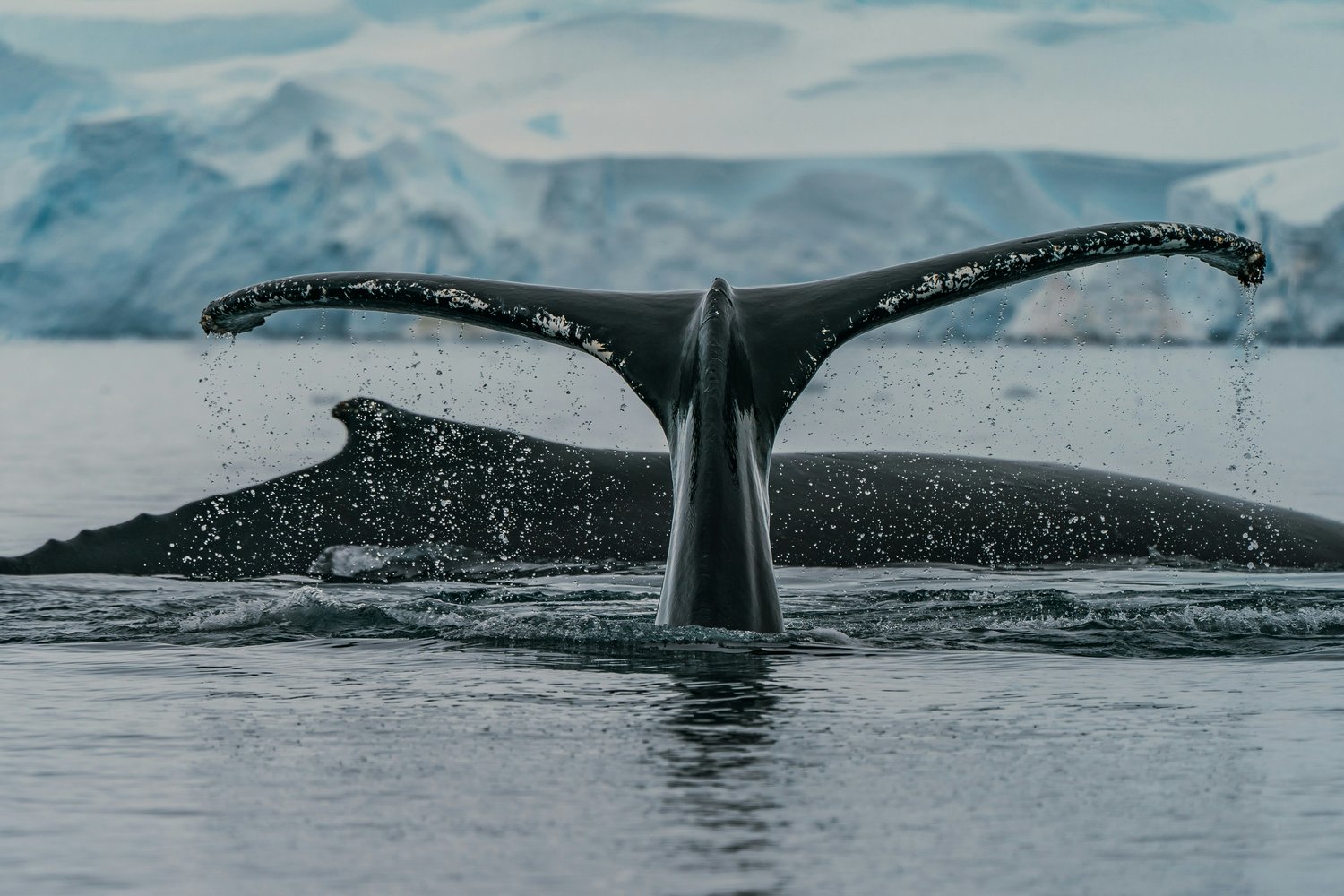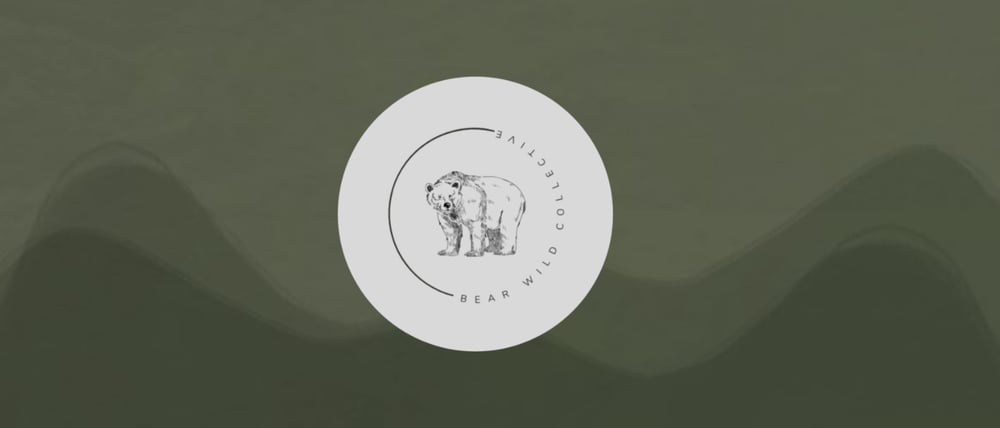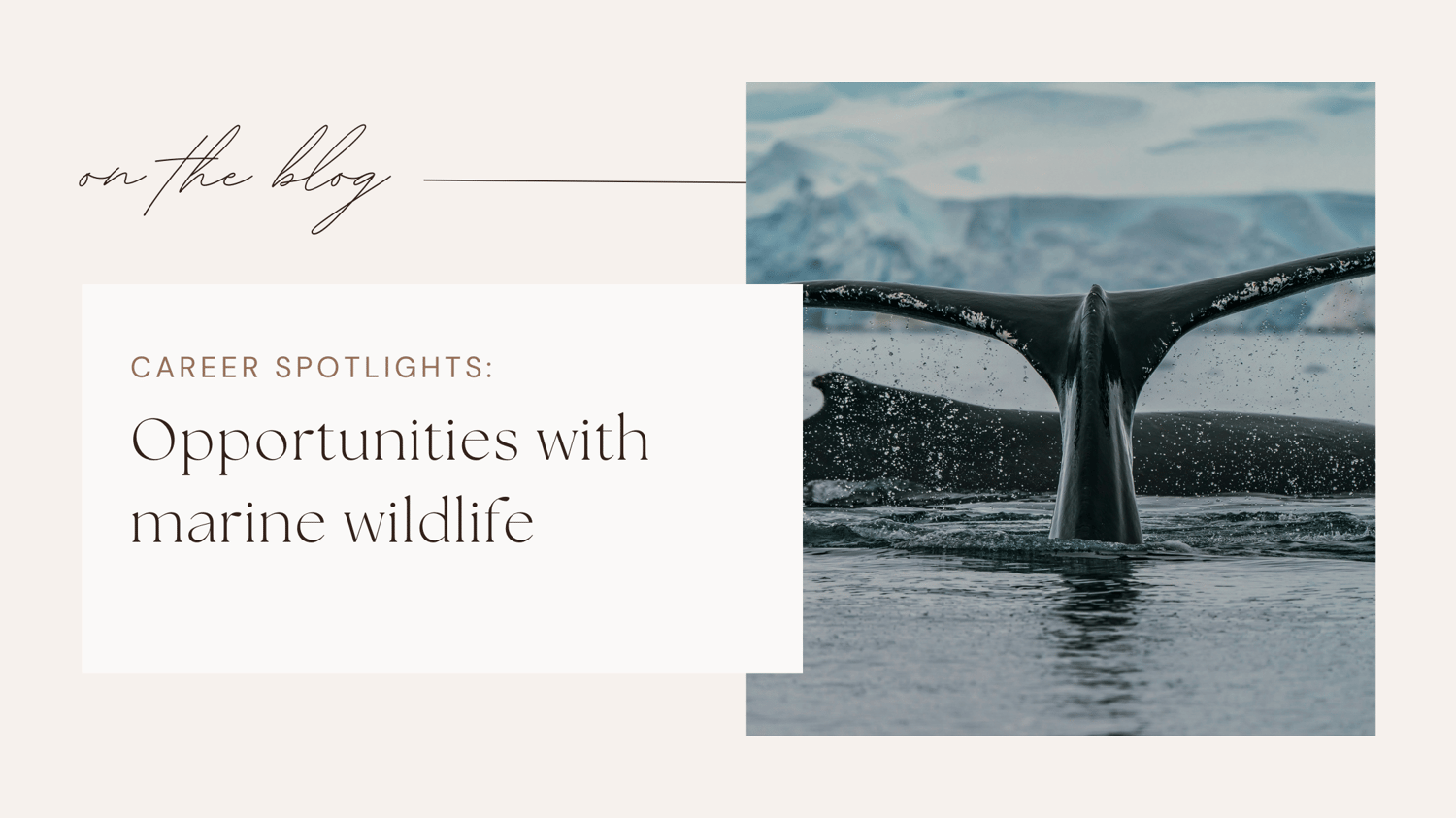The health of our oceans is critical not only for marine life but for the entire planet. As climate change, overfishing, and pollution continue to threaten ocean ecosystems, careers in marine wildlife conservation are becoming more essential than ever. From research to policy, marine conservation professionals play a key role in protecting marine species and habitats. If you're passionate about the ocean and its wildlife, there are numerous rewarding careers dedicated to its preservation. If animal welfare is more your thing, there's a broad range of organisations working on issues like dolphin captivity and whaling! And as aquaculture continues to grow the marine sector is also increasingly branching out into marine wildlife welfare (take a look at the Aquatic Life Institute and the Shrimp Welfare Project). Here are some more examples of marine wildlife focused jobs.
To explore more unique career options in the wildlife sector, take a look at our Wildlife Career Accelerator and Wildlife Work Directory.

[Credit Rod Long]
Marine Biologist
Marine biologists are at the forefront of understanding ocean ecosystems. These scientists study marine organisms, including fish, mammals, invertebrates, and coral, to learn about their behavior, life cycles, and interactions with the environment. They often conduct field research, both in the lab and at sea, to monitor the health of marine species and ecosystems. Marine biologists may also research the effects of human activity on ocean habitats and work to find solutions to mitigate damage. Key employers for marine biologists include research institutions, universities, government agencies like the National Oceanic and Atmospheric Administration (NOAA), and environmental NGOs.
Marine Conservation Policy Analyst
Marine conservation policy analysts work to influence laws and regulations that protect marine species and habitats. They conduct research on issues like overfishing, ocean acidification, or plastic pollution and help develop evidence-based policies to address these challenges. These professionals collaborate with governments, NGOs, and international organizations to shape marine protection laws and advocate for their enforcement. Policy analysts may work with international bodies such as the United Nations Environment Programme (UNEP) or national organizations like the Marine Conservation Society. Their work ensures that conservation efforts are supported by strong legal frameworks.
Marine Park Ranger
Marine park rangers are responsible for protecting and managing marine protected areas (MPAs). These rangers patrol the coastlines, monitor wildlife populations, and ensure that the regulations set to protect these areas are being followed. They also educate the public about the importance of ocean conservation and report illegal activities like poaching or illegal fishing. Marine park rangers typically work in marine reserves, national parks, or coastal conservation areas. Organizations like the Marine Conservation Group and local government authorities often employ rangers.
Marine Wildlife Veterinarian
Marine wildlife veterinarians focus on diagnosing and treating illnesses, injuries, and diseases in marine animals. These professionals work with species like sea turtles, whales, dolphins, and seals. They may also be involved in rescue and rehabilitation efforts for injured or stranded marine animals. Their role is vital for the survival of individual species and the overall health of marine ecosystems. Marine wildlife vets are often employed by marine rescue centers, aquariums, and conservation NGOs dedicated to animal welfare. If you're based in the UK and are looking to gain experience of marine life rescue, check out British Marine Life Rescue Divers' courses to learn how to save stranded dolphins, seals, and more.
Marine Environmental Educator
Education plays a vital role in marine conservation. Marine environmental educators work to raise awareness about ocean issues and inspire action through educational programs, workshops, and outreach initiatives. They may teach students, organise public events, or develop educational content like websites, videos, and interactive exhibits. Their work helps foster a greater appreciation for marine ecosystems and encourages the public to adopt more sustainable practices. These roles are often found in aquariums, museums, and environmental NGOs such as Oceana or Sea Shepherd Conservation Society.
Careers in marine wildlife conservation (and the broader marine sector) offer a diverse range of opportunities for individuals passionate about ocean protection. Whether through scientific research, policy advocacy, or hands-on work with marine species, these roles are instrumental in addressing the challenges faced by ocean ecosystems. As the need for marine conservation continues to grow, there’s never been a better time to pursue a career dedicated to preserving our oceans for future generations.



